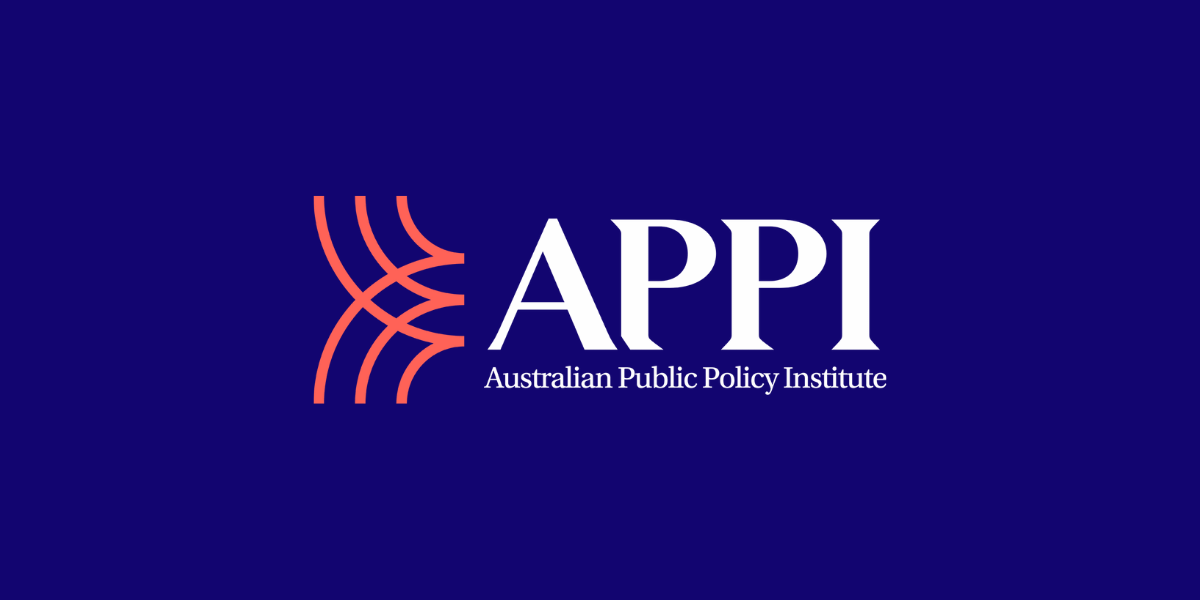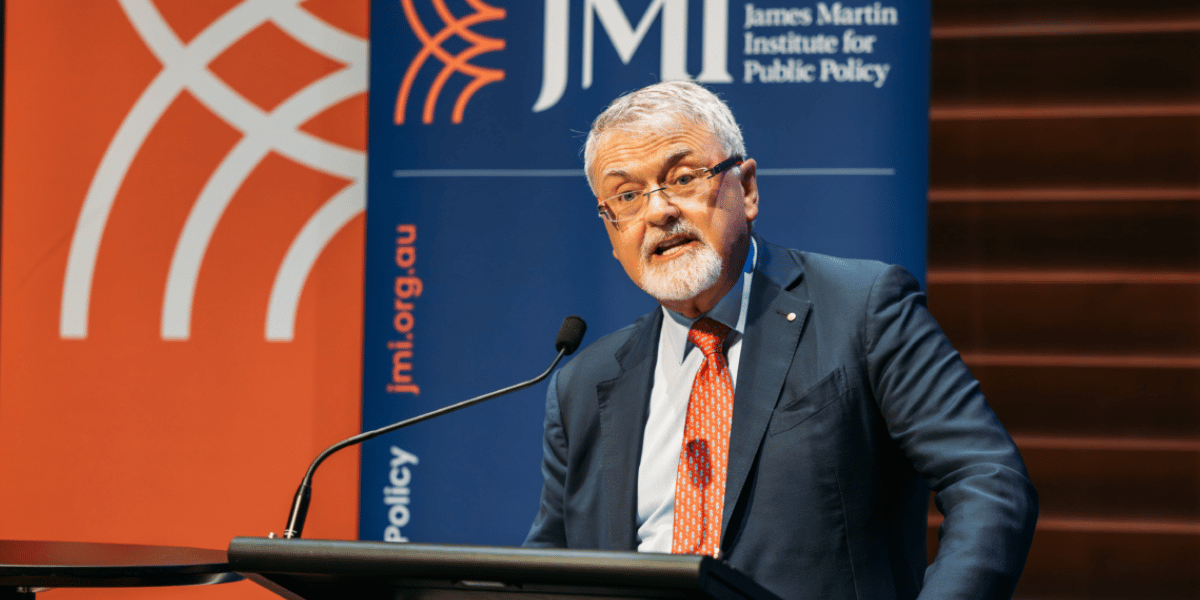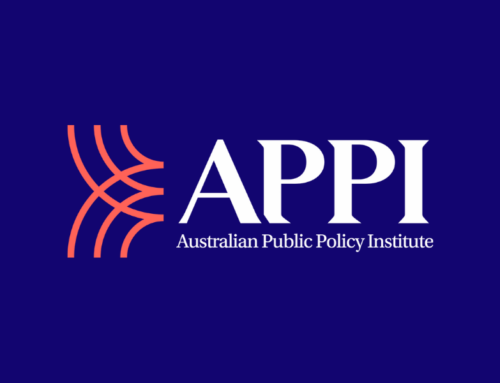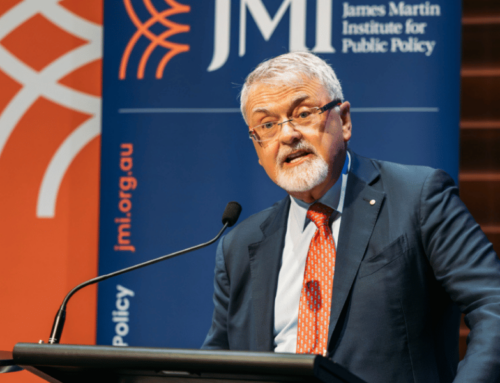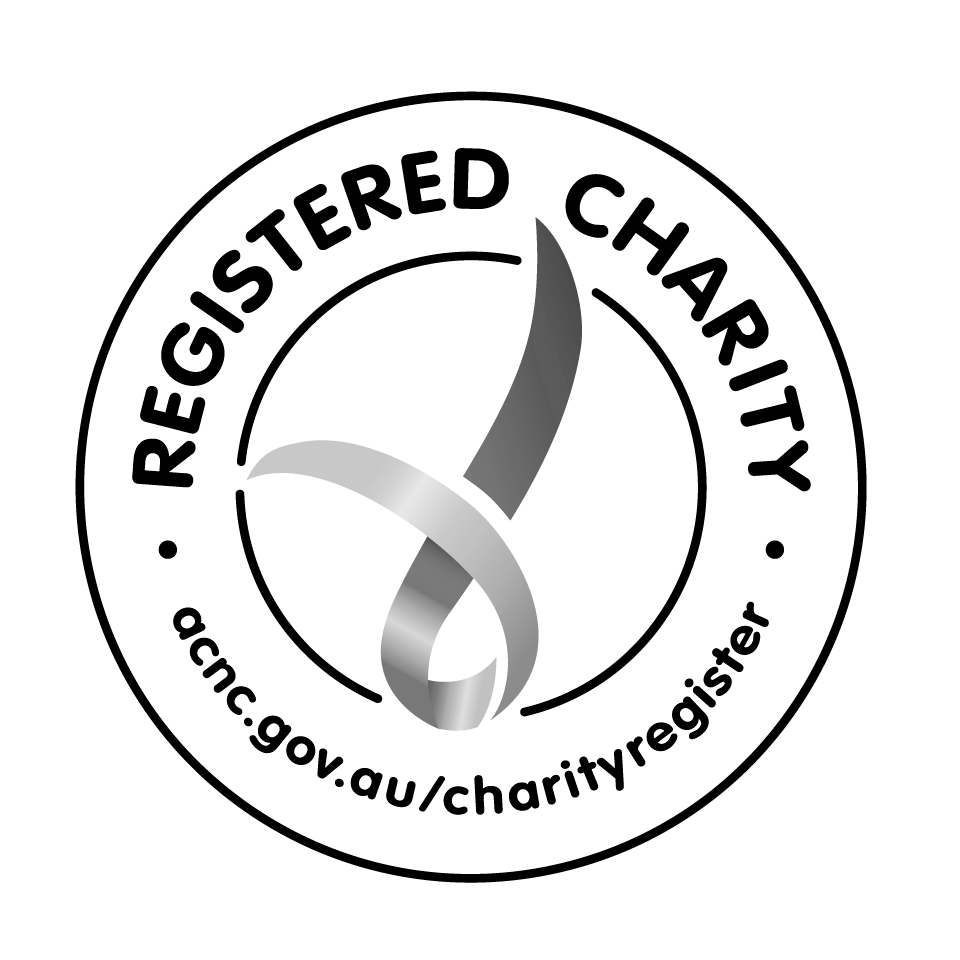
Anthony Dursi joined the James Martin Institute for Public Policy as Executive Director for External Affairs in June 2023. Anthony brings nearly two decades of experience in external relations roles in Canada, the US, and the UK. In this interview, he reflects on the unique position of JMI in the policymaking environment.
What was your background before JMI and what led you to join the Institute?
As a trailblazing conduit between the research and policymaking communities, I’m incredibly excited about JMI’s mission and model. From my professional background in higher education, public policy, and think tanks, I look forward to helping to build JMI’s distinctive capabilities to leverage academic expertise for the public good.
I’ve always been passionate about the role that higher education can play in individuals’ lives as well as society as a whole. I started my career in the Executive Offices of McGill University in Montreal and the Cooper Union in New York City before moving to London and joining the then-newly incorporated Russell Group of Universities, which represents the largest research-intensive universities in the UK.
I then transitioned into professional bodies leading outreach teams as well as the private sector before being lucky enough to land at the United Nations. I was privileged to lead communications for many years at the United Nations University Centre for Policy Research in New York, the UN’s think tank, and then had the opportunity to work in the Executive Office of the Secretary-General.
I’ve worked with phenomenal and inspiring teams throughout my career, which is also what drew me to JMI. I’m looking forward to utilising my experience across a number of different areas to help support the Institute’s mission and expand its offering going forward.
What did working at the UN teach you about the importance of leveraging academic expertise in policymaking?
I think many sectors are used to working and speaking within their own silos, and the thought of more networked approaches can be uncomfortable. However, it’s critical to create space to ensure more productive collaboration between researchers and policymakers in particular. In many ways, that’s what both of my roles at the UN involved – finding creative ways of communicating and feeding evidence into policy.
Engaging with a large number of governments, donors, and experts around the world, it’s clear that we must invest more into ensuring that academics are able to effectively communicate their research findings to policymakers in a timely fashion, and likewise that policymakers are equipped to be able to identify research that can help support sound public policies and programs. I’ll be taking this forward at JMI as we formulate capacity-building training for both policymakers and academic experts.
JMI announced its charity registration with the Australian Charities and Not-for-profits Commission (ACNC) in March this year. What opportunities will this new status bring?
JMI was launched for the public good – for the people, planet, and future of New South Wales and beyond. In harnessing existing publicly-supported research and expertise to address the most pressing policy challenges affecting everyday life, JMI is a coalition-builder. Indeed, by its very nature and structure as a government partner with member universities, it’s built around partnerships. Policymaking isn’t created in a vacuum: it needs to be informed in discussion with key stakeholders, and in concert with those that can help amplify and scale up the best approaches. JMI has already seen a great outpouring of support and I hope to build on that goodwill in the coming months and years to build strong, lasting partnerships for the Institute.
What role do you see for JMI in helping the public service operate effectively in an increasingly challenging environment?
In New South Wales and globally, this is a time of great uncertainty. The ripple effects of the COVID-19 pandemic are still being felt as we stare down the barrel at approaching economic, technological, and social transformations. It’s also a time of great opportunity though, and I’m excited that JMI can feed in critical evidence to policymaking processes when it’s most needed.
Now more than ever, public servants need to prioritise those programs and policies that are most likely to positively impact the lives of their constituents, and JMI is well-positioned to be a strategic partner to both public servants as well as academics at all levels in that regard.

